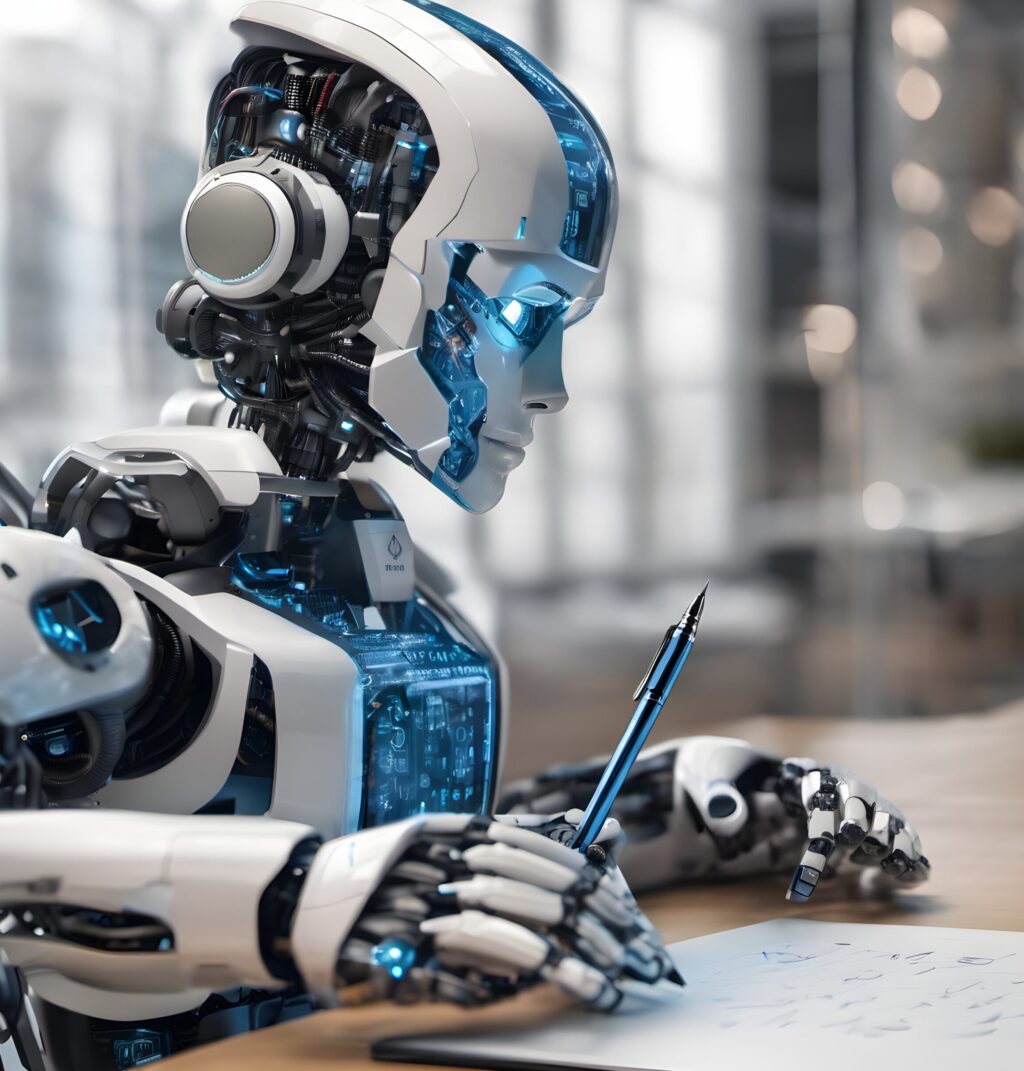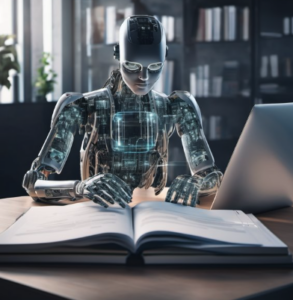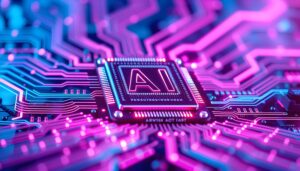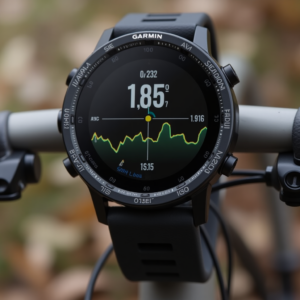
The Unlikely Rise of AI Poetry
In recent years, the rapid development of artificial intelligence (AI) has made its way into a variety of creative fields, including visual art, music, and literature. One of the more surprising applications has been in the realm of poetry. AI poetry—created by advanced language models like GPT-3—has gained attention not just for its novelty, but for the surprising quality of the poems it produces. Recently, a study has revealed that AI-generated poetry is frequently rated better than traditional poems written by humans. This intriguing finding opens up new possibilities for both the creative world and the perception of what constitutes art.
AI Poetry: A New Frontier in Creative Writing
Artificial intelligence has become a tool that increasingly mimics human creativity. From generating essays to composing symphonies, AI’s capabilities in creative writing, specifically poetry, are advancing at an astonishing pace. A new study published in Scientific Reports and conducted by researchers at the University of Pittsburgh highlights a fascinating trend: AI poems—created by a sophisticated language model like ChatGPT3.5—are often rated more favorably than their human counterparts.
This revelation brings up a significant question: What is it about AI poetry that resonates with readers? And what does this mean for the future of the art form?
The Study: Comparing AI and Human Poetry
The study was conducted in two phases, involving over 2,300 participants. In the first experiment, 1,634 participants were asked to determine whether specific poems were written by famous poets like Shakespeare, Emily Dickinson, and T.S. Eliot, or by ChatGPT3.5. The poems were crafted by AI in the styles of these renowned poets. Remarkably, participants were more likely to mistakenly identify AI poems as human-written, showing the impressive ability of AI to mimic human creativity.
In the second experiment, 696 participants assessed the poems based on 14 different characteristics, including quality, emotional impact, originality, and rhythm. The participants were divided into three groups. The first group was told that the poems were AI-generated, the second group was told they were written by humans, and the third group was not informed about the origin of the poems.
When participants were told the poems were written by humans, they rated them more highly across nearly all criteria. However, when participants were unaware of the poems’ origins, they tended to prefer AI-generated poems. The simplicity and clarity of AI poetry appeared to resonate with readers more than the complexity often found in human poetry.
Why Is AI Poetry Rated Higher?
1. Clarity and Accessibility
One of the key reasons AI poetry often outperforms human poetry in these studies is its simplicity and accessibility. Traditional poetry, especially from historical poets like Shakespeare or Dickinson, can be dense, filled with archaic language or complex metaphors. For many modern readers, this makes it difficult to fully grasp the meaning and emotional depth of the poem. In contrast, AI poetry tends to be more straightforward and easier to understand. This accessibility likely plays a role in the positive ratings it receives.
The ability of AI to produce clear, easy-to-interpret poetry gives it an edge over human poetry that requires more time and effort to appreciate. AI poetry may also have a more consistent rhythm, making it more appealing to readers who prefer structured, easily digestible verses.
2. Simplicity Over Complexity
While complexity is often viewed as a hallmark of great poetry, not all readers appreciate it. Modern audiences, particularly those accustomed to the quick pace of the digital age, might favor the more straightforward, concise style of AI poetry. With shorter sentences, clearer imagery, and easily recognizable rhythms, AI poetry might strike a chord with people looking for instant gratification.
Human poetry, especially from classic poets, often requires deeper analysis and contemplation. The complexity of poetic form, layered meanings, and historical context can sometimes make these works difficult to engage with for readers who aren’t already well-versed in the nuances of poetry. The perceived ease of reading AI poetry can be a decisive factor in why it is rated more favorably.
3. The “Bias Toward the Familiar” Phenomenon
Another factor that may be influencing the results is a psychological bias called the “familiarity effect.” People tend to rate things more favorably when they perceive them as similar to what they already know or find comfortable. In the study, the participants were often presented with poems that were written in the style of familiar poets but created by AI. The familiarity of the poetic style combined with the simplicity of the AI’s work may have made these poems seem more “human-like,” thus influencing their ratings positively.
When participants were told the poems were AI-generated, however, this bias seemed to disappear. The clarity and accessibility of AI poems stood in contrast to the more complex works of human poets, which were sometimes viewed as incoherent.
4. Perception of Creativity
The study also uncovered an important aspect of how creativity is perceived. AI poetry often lacks the complexity that comes with the unpredictability of human emotions. However, it compensates for this by producing poetry that is often more digestible and neatly packaged. The problem arises when participants, told that the poem was AI-generated, misinterpret the work’s simplicity as a lack of true creativity, leading to lower ratings.
Ironically, AI poems were often considered more “creative” when participants were unaware of the authorship because they did not expect machines to generate poetry that could be considered artistic. This underscores the value we place on human creativity and the inherent bias we carry when it comes to evaluating machine-made works.
Implications for the Future of Poetry
The results of this study suggest that AI poetry is not just a novelty but something that is resonating with readers in meaningful ways. As AI technology continues to evolve, its impact on the literary world could be profound. AI poets, who can produce vast amounts of poetry quickly and efficiently, may begin to play a larger role in the literary and creative sectors.
1. AI as a Tool for Writers
While some fear that AI could replace human writers, many believe that it will instead serve as a tool to enhance creativity. Writers can use AI poetry generators to brainstorm ideas, overcome writer’s block, or refine their own work. AI poetry writers are not likely to replace human poets entirely but can complement their creativity by offering a new perspective or approach.
For example, AI could provide alternative interpretations of a theme or suggest stylistic changes that a human writer may not have considered. This could serve to enrich the creative process rather than detract from it.
2. Ethical and Philosophical Considerations
As AI continues to produce works that are indistinguishable from human creativity, new ethical and philosophical questions arise. Who owns a poem written by AI? Should AI be given credit as the author, or should the developers who created the AI receive recognition? Moreover, as AI-generated poems gain more recognition, the very definition of art and creativity may need to be reevaluated.
While AI can generate poetry that reads as well as—if not better than—human poetry, it is still a tool. The real question is whether we, as a society, will allow machine-created art to be accepted in the same way we accept human-created art. Can a poem written by AI truly capture the depth of human experience, or does it lack the emotional complexity that defines great art? These questions challenge our traditional understanding of creativity and art.
3. AI’s Role in the Literary Community
In the literary community, AI-generated poems might be seen as a form of collaboration between human and machine. Some writers may embrace the technology, using it to craft poems that blend human insight with AI precision. As AI poetry becomes more commonplace, its role could extend beyond novelty and become a respected literary form in its own right.
The Future of AI Poetry
The study reveals that AI poetry is not only comparable to human poetry in quality, but in some cases, it is preferred by readers. The simplicity, clarity, and accessibility of AI-generated poems give them an edge over more complex, traditional poetry, especially when readers are not aware of the poem’s origin. As AI technology evolves, its impact on the creative world will undoubtedly grow. Whether as a tool for writers or a standalone art form, AI poetry has carved a niche for itself in the literary landscape.
The future of poetry, it seems, may not just be written by human hands. With AI poems gaining recognition, we are standing on the brink of a new era of creativity—one where the boundaries between human and machine-generated art are increasingly blurred.
Visit our other website: https://synergypublish.com



